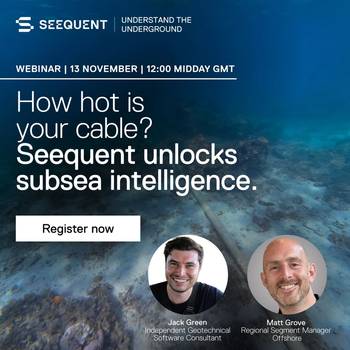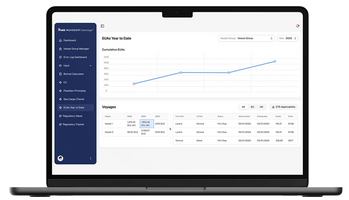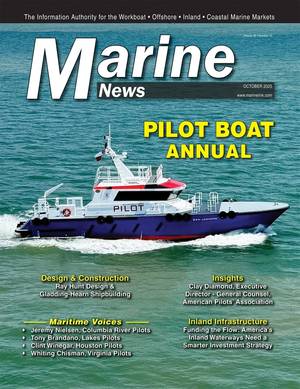AWO: 50 Years Of Excellence
This year, as AWO and its members celebrate the association's 50th anniversary, we are reminded that the last half-century of challenge, progress, and victory demonstrate AWO's enduring commitment to service to the barge and towing industry. Here are a few of AWO's historical highlights: • May 1944: The American Waterways Operators (AWO) organizes in Washington, D.C., charged with representing the inland barge and towing industry. The association is incorporated in Delaware on May 22, 1944. On May 26, AWO holds its first meeting in St. Louis. Throughout 1944, regional offices in New Orleans, Pittsburgh, and Chicago are established.
• July 1, 1950: The New York- North Atlantic area is formally established, along with the Atlantic Region (New York City) office, under an arrangement with the New York Towboat Exchange and the Harbor Carriers Association. • September 1955: The National Waterways Conference organizes under the leadership of AWO to combat the threat of tolls and user charges on the nation's inland waterways.
• June 1958: AWO organizes a Boating Safety Committee with the purpose of achieving a better understanding between operators of commercial vessels and users of pleasure craft to assure more harmonious and safe use of the waterways.
The Boating Safety Committee quickly expands into the National Safe Boating Association in 1959 • February 1969: AWO's Board of Directors votes to amend theA WO Constitution and Bylaws to include representation of the coastal sector as well as the inland sector.
• February 1976: AWO opens its Midcontinent office in St. Louis to enhance service to members in the Ohio Valley and Midwest regions. The office is closed from 1983 to 1990 during the inland industry depression, but is reopened in 1991 in the midst of an ambitious membership campaign in those regions.
• February 1976: AWO's Shipbuilding and Ship Repair Committee reorganizes as the American Waterways Shipyard Committee, addressing exclusively the needs and concerns of AWO members' second- tier shipyards.
• December 1978: The American Waterways Shipyard Committee becomes the American Waterways Shipyard Conference (AWSC). AWSC emerges as an integral part of AWO, representing the interests of small- and medium-sized shipyards. • Fall 1979: AWO leaders approach the House Coast Guard and Navigation Subcommittee to seek assistance in enhancing communication between the industry and the Coast Guard. Subsequent meetings result in the drafting and passage of a bill by the Subcommittee calling for the establishment of the Towing Safety Advisory Committee (TSAC). TSAC becomes an advisory group to the Secretary of Transportation on October 6, 1980.
• March 1983: AWO unites with its sister organization, the Water Transport Association, to form the Water Transport Conference, to address the issues of rail-water competition. • July 1988: The midwest drought spurs AWO to organize leaders from industry, the Corps of Engineers, and Coast Guard to form the River Industry Executive Task Force (RIETF) to manage the drought's effects on navigation on the nation's inland river system. The RIETF is resurrected in 1993 with the Great Flood in the midwest.
• March 1989: AWO launches its Lifelines boating safety program, borrowing on its early and enduring commitment to marine safety.
• January 1 991: The Towboat and Harbor Carriers Association merges with AWO, bringing 20 new members to the association and creating a single, stronger voice for the industry along the Atlantic Coast. • April 1 993: AWO's Task Force on Mission, Structure and Finance recommends a plan to, among other things, create four committees and a Common Issues Council to better target AWO on the needs of the industry's operational sectors. The new committees, Inland Dry, Inland Liquid, Coastal, and Harbor Services, give members forums in which they can focus on issues specific to their particular operation.
Compiled by Eve Ann Holloway, American Waterways Operators





